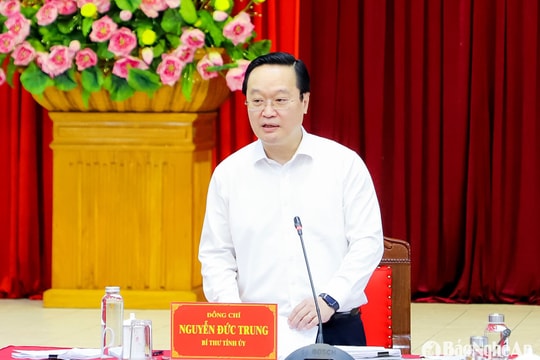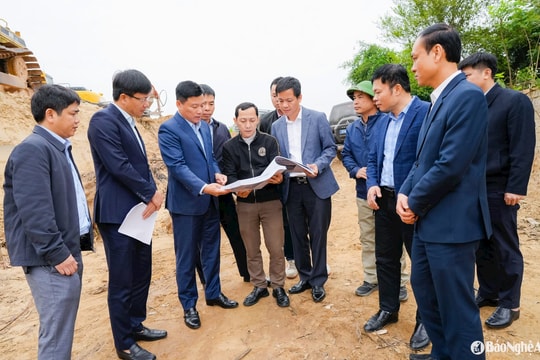Nghe An: Developing a network of educational facilities suitable for the 2-level local government model
On the afternoon of April 24, the Provincial People's Council's Thematic Supervision Delegation on planning and arranging the network of schools and classes at educational institutions in Nghe An from 2022 - 2025 worked with the Provincial People's Committee.
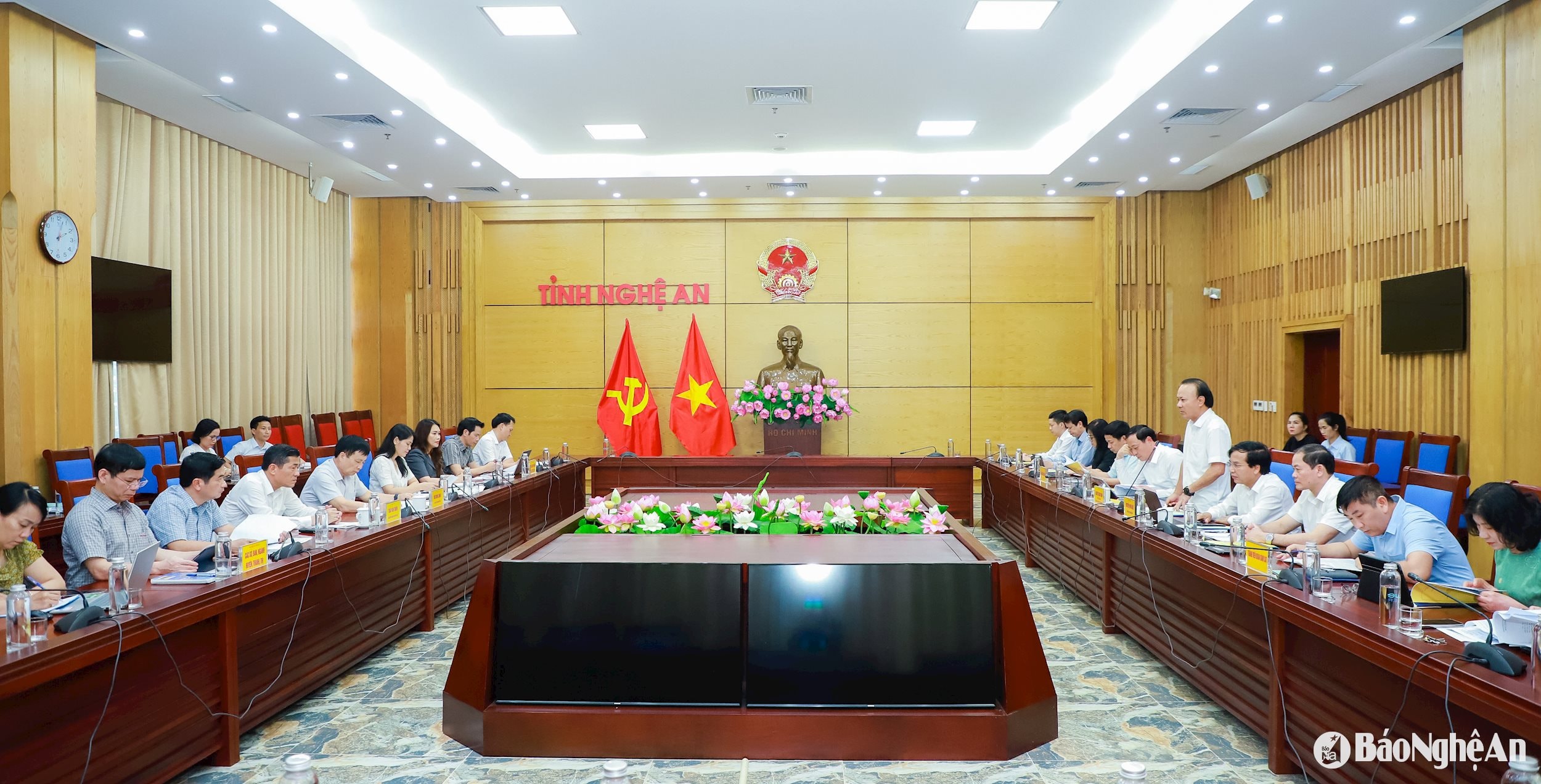
Comrade Nguyen Nam Dinh - Member of the Provincial Party Standing Committee, Permanent Vice Chairman of the Provincial People's Council as Head of the supervision delegation.
Attending the meeting were comrade Nguyen Nhu Khoi - Member of the Provincial Party Executive Committee, Vice Chairman of the Provincial People's Council; leaders of the Provincial Vietnam Fatherland Front Committee and the Provincial People's Council committees, the Office of the National Assembly Delegation and the Provincial People's Council.
Working with the delegation of the Provincial People's Committee were comrades: Bui Dinh Long - Member of the Provincial Party Executive Committee, Vice Chairman of the Provincial People's Committee; Thai Van Thanh - Member of the Provincial Party Executive Committee, Director of the Department of Education and Training, along with leaders of departments, branches and some localities.
Continue to adjust the school network in a streamlined and practical direction.
At the meeting, the monitoring delegation raised many urgent issues related to school planning and arrangement.
Accordingly, in recent years, Nghe An province has actively implemented the arrangement and adjustment of the school network in a streamlined manner, suitable to the actual conditions of each locality. However, the implementation process still faces many difficulties and obstacles; currently the whole province still has 882 separate schools, mainly at the preschool and primary levels.
Meanwhile, in urban areas, especially Vinh city, the rapid rate of population growth has caused many schools to become overloaded.
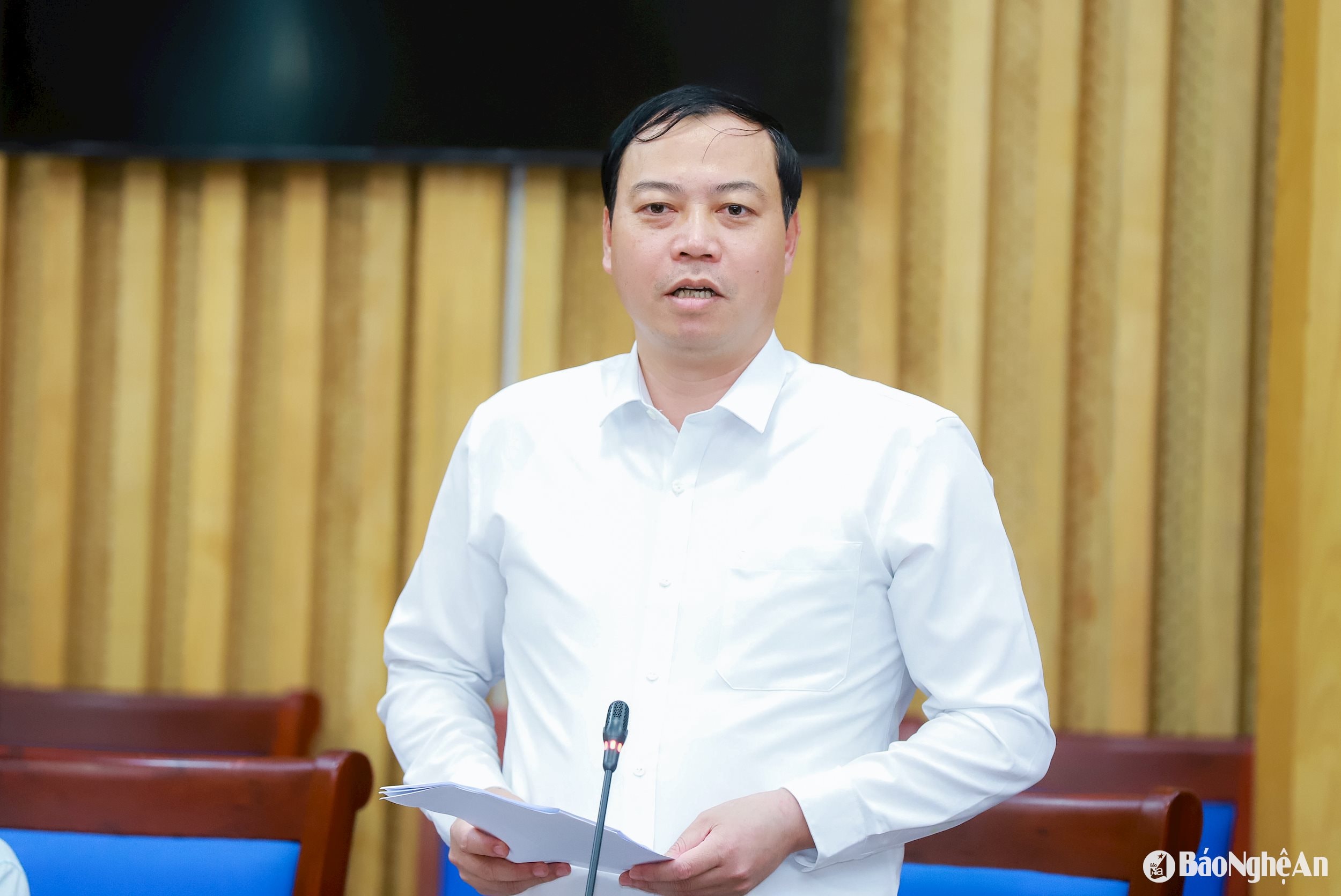
Faced with this situation, the monitoring delegation requested the Provincial People's Committee to review the population size of each area to promptly adjust investment plans, build new schools or expand schools.
In particular, in Vinh City, it is necessary to speed up the construction of the second campus of Huynh Thuc Khang High School and consider receiving and expanding Hermann Gmeiner Vinh High School to reduce the burden on the public school system.
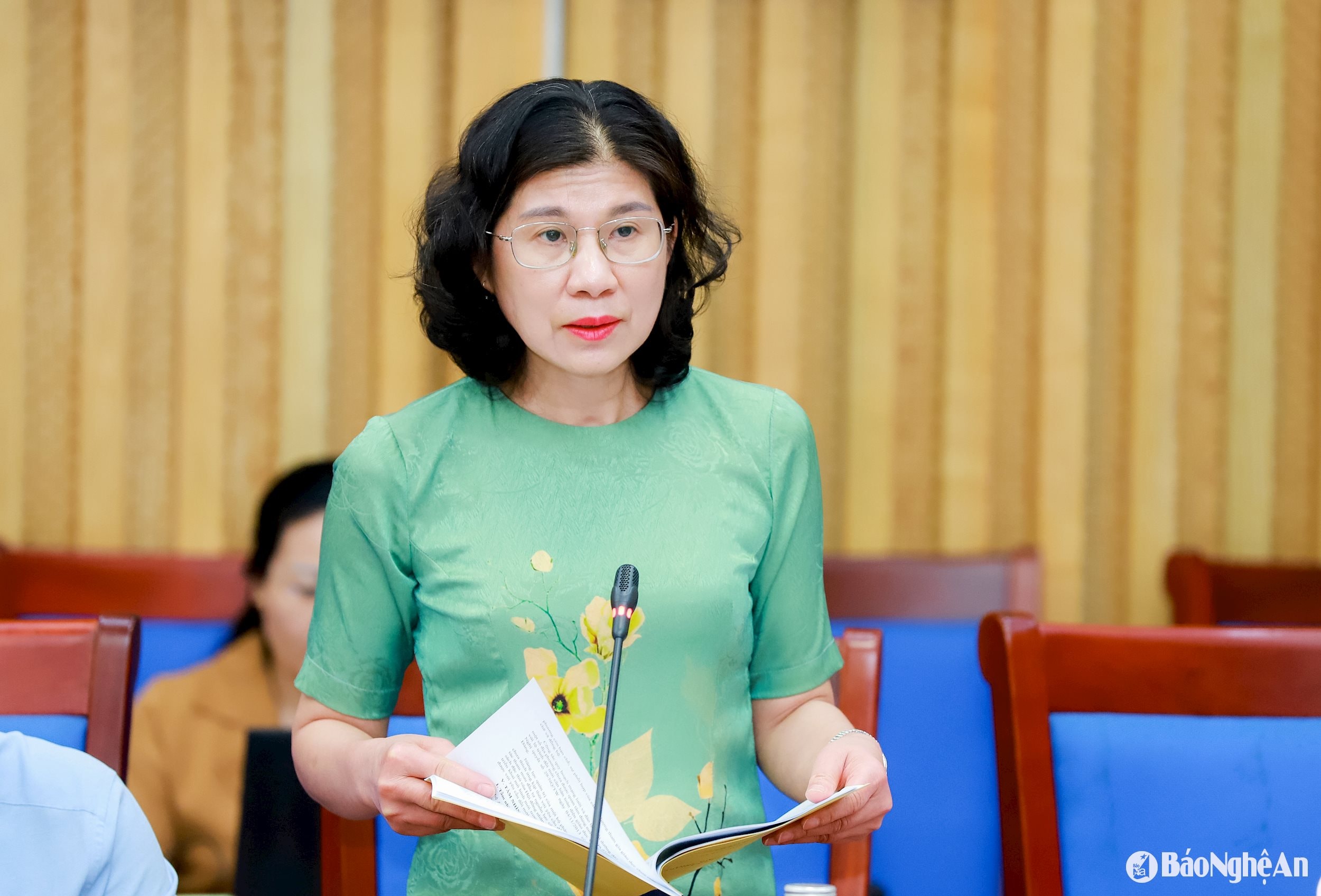
In addition to general education, the issue of arranging and reorganizing the vocational education system is also of concern to the monitoring delegation. According to the assessment, the network of vocational training facilities in the province is still fragmented; the enrollment rate for colleges and intermediate levels is still low, accounting for only about 21.6%.
The monitoring delegation suggested that the province study a vocational training model in the direction of intensive concentration, rearrange the existing training system, consider forming 3 key regional vocational training centers in Northern Nghe An (Quynh Luu Economic - Technical College), Western Nghe An (Western Economic - Technical College in Thai Hoa) and border areas (Ethnic Boarding College in Con Cuong).
Along with that, it is necessary to focus resources on developing 3 high-quality vocational colleges including: Vietnam - Korea College, Vietnam - Germany College and Nghe An College of Tourism - Commerce, forming a vocational training network linked by industry clusters and regions.
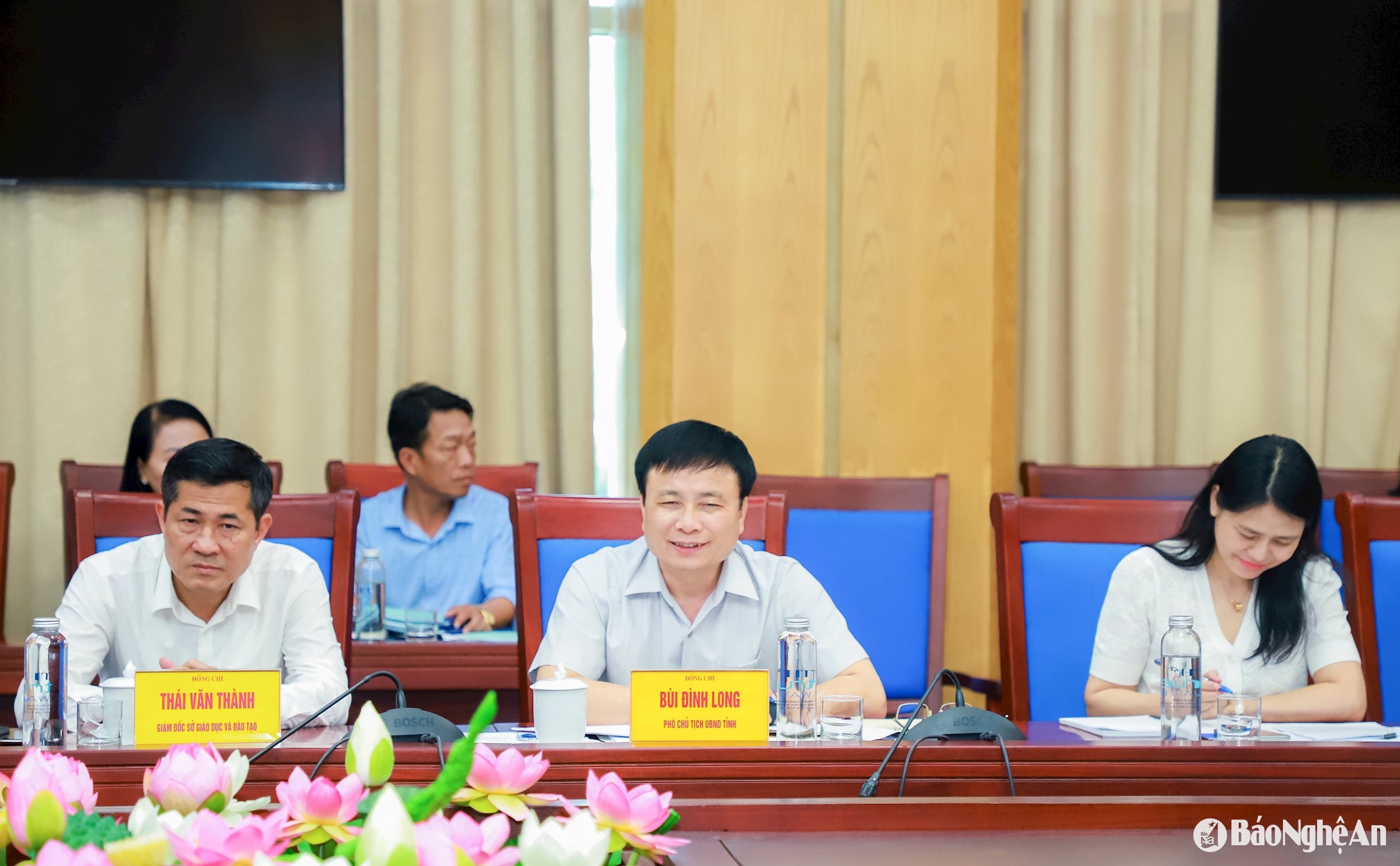
Another important content emphasized by the monitoring delegation is the review and completion of the education and training support policy system suitable for the new context.
Vice Chairman of the Provincial People's Council Nguyen Nhu Khoi said that it is necessary to comprehensively evaluate the effectiveness of the educational policies issued by the Provincial People's Council in the past. Policies that have brought practical results should be maintained, while those that have not yet been effective should be boldly stopped, in order to reallocate resources to key policies, especially in difficult areas or areas that need to be encouraged for development.
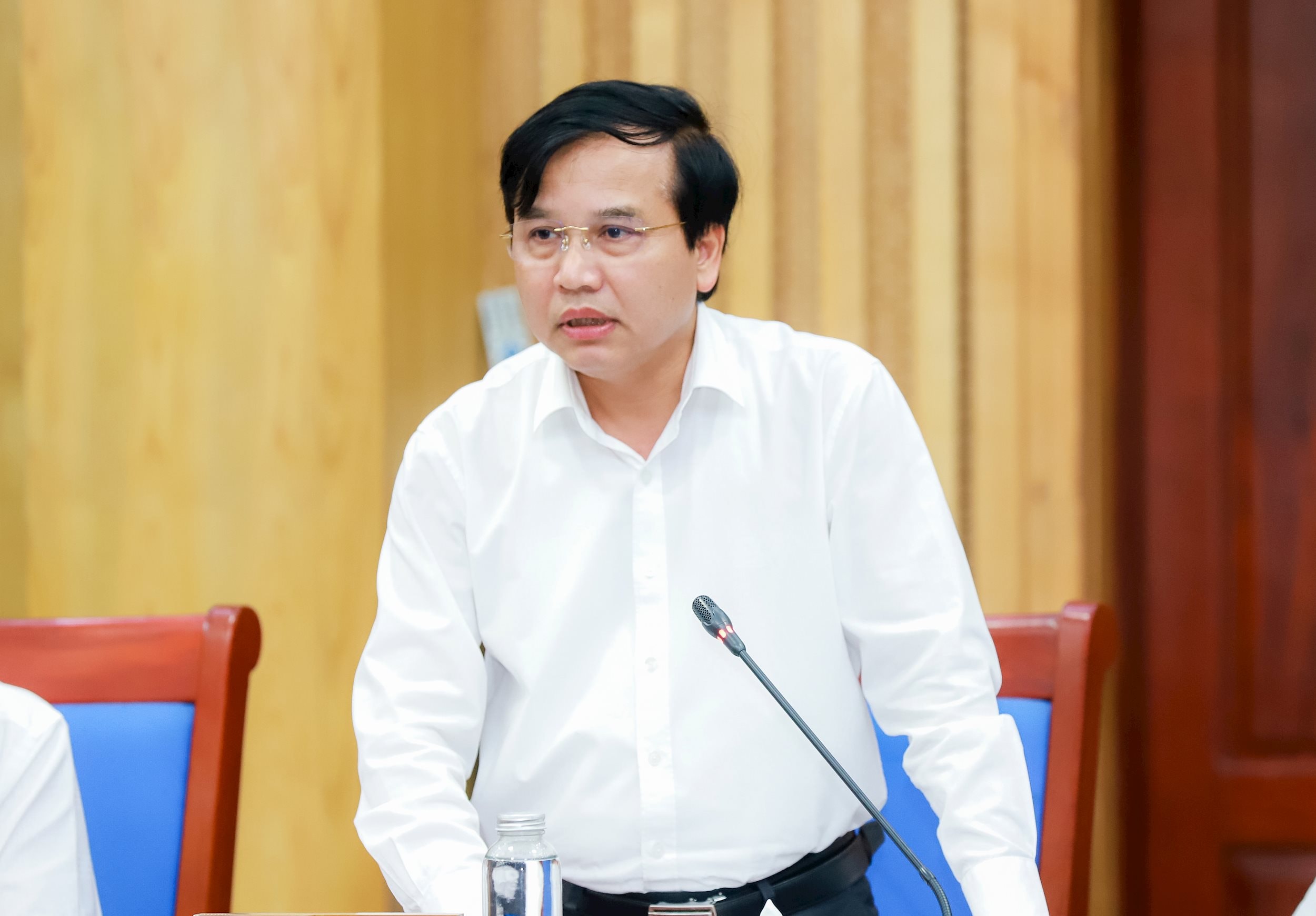
Regarding vocational training, the Vice Chairman of the Provincial People's Council pointed out some shortcomings when the current training structure is not really suitable for the needs of the labor market. Specifically, there is still a lack of high-demand occupations such as automation, electricity, electronics, etc.
Another noteworthy point is that foreign language proficiency, especially Chinese, of students and workers is still limited. Faced with this situation, the Vice Chairman of the Provincial People's Council suggested that the relevant agencies need to develop specific and practical solutions to overcome the above situation and improve the quality of human resources in the coming time.
In addition, at the meeting, members of the monitoring delegation focused on discussing many important issues related to management and enrollment at different levels of education, as well as the issue of teacher recruitment in the context that the province is implementing a two-level local government model.
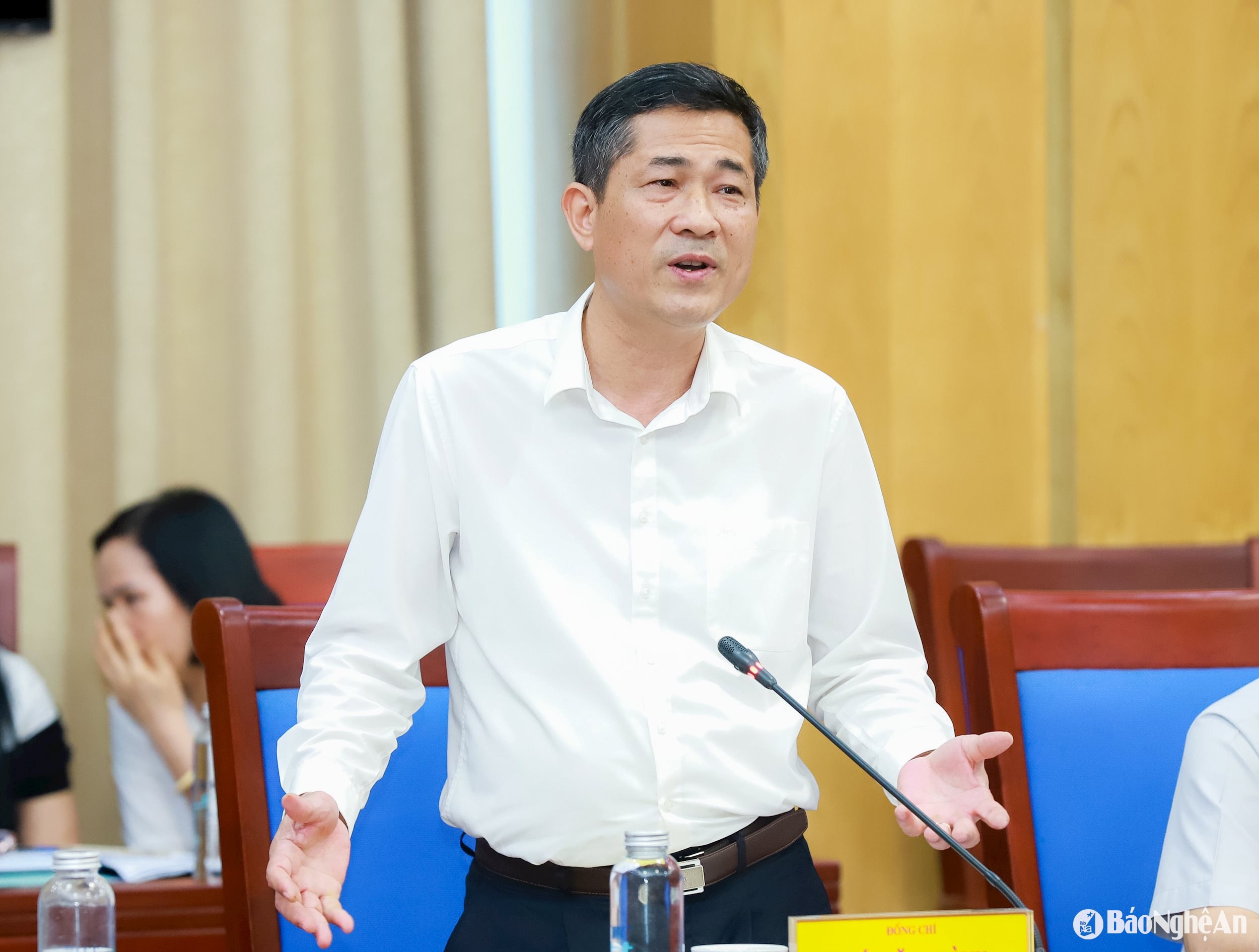
Prof. Dr. Thai Van Thanh - Member of the Provincial Party Executive Committee, Director of the Department of Education and Training directly explained the contents raised by the monitoring delegation; in which he expressed his high agreement with the need to review and re-plan the school network; the reception and expansion of Hermann Gmeiner Vinh High School; the reduction of vocational schools towards key areas and regional centers...
Regarding the issue of staffing, the Department Director said that currently, the Education sector still has more than 1,500 staffing positions that have not been recruited. Of which, high school level is still allowed to recruit normally according to the plan. Particularly for levels from preschool to secondary school, recruitment will be implemented after the province completes the organization of the apparatus according to the 2-level local government model, ensuring completion before the new school year, promptly meeting the requirements of teaching and learning.
In addition, the Department's leaders also presented and analyzed specific enrollment plans suitable for the two-tier local government model. These plans are designed on the basis of ensuring students' rights, while facilitating the management and operation of the province-wide education system in the new administrative context.
Reduce the number of odd locations to focus on investing in building boarding and semi-boarding schools.
Speaking at the meeting, Vice Chairman of the Provincial People's Committee Bui Dinh Long emphasized that the Provincial People's Committee accepted all opinions of the monitoring delegation and will direct maximum implementation in the recommended direction, with the hope of receiving high consensus from all levels and sectors so that the Education sector can effectively implement the set goals.
.jpg)
From the monitoring results, he proposed that the monitoring delegation agree and support the Provincial People's Committee in issuing a number of separate educational policies for mountainous areas; at the same time, support the assignment of the Department of Education and Training to be responsible for managing a number of contents such as recruitment and use of the entire sector's payroll when organizing a two-level local government.
The Vice Chairman of the Provincial People's Committee also assigned the Education sector to proactively advise on policies related to recruitment and arrangement of school networks, ensuring that they can operate as soon as the two-level government model is officially implemented.
Concluding the working session, Permanent Vice Chairman of the Provincial People's Council Nguyen Nam Dinh - Member of the Provincial Party Standing Committee acknowledged the efforts and achievements of the Education sector, and at the same time pointed out a number of shortcomings and limitations that need to be overcome.
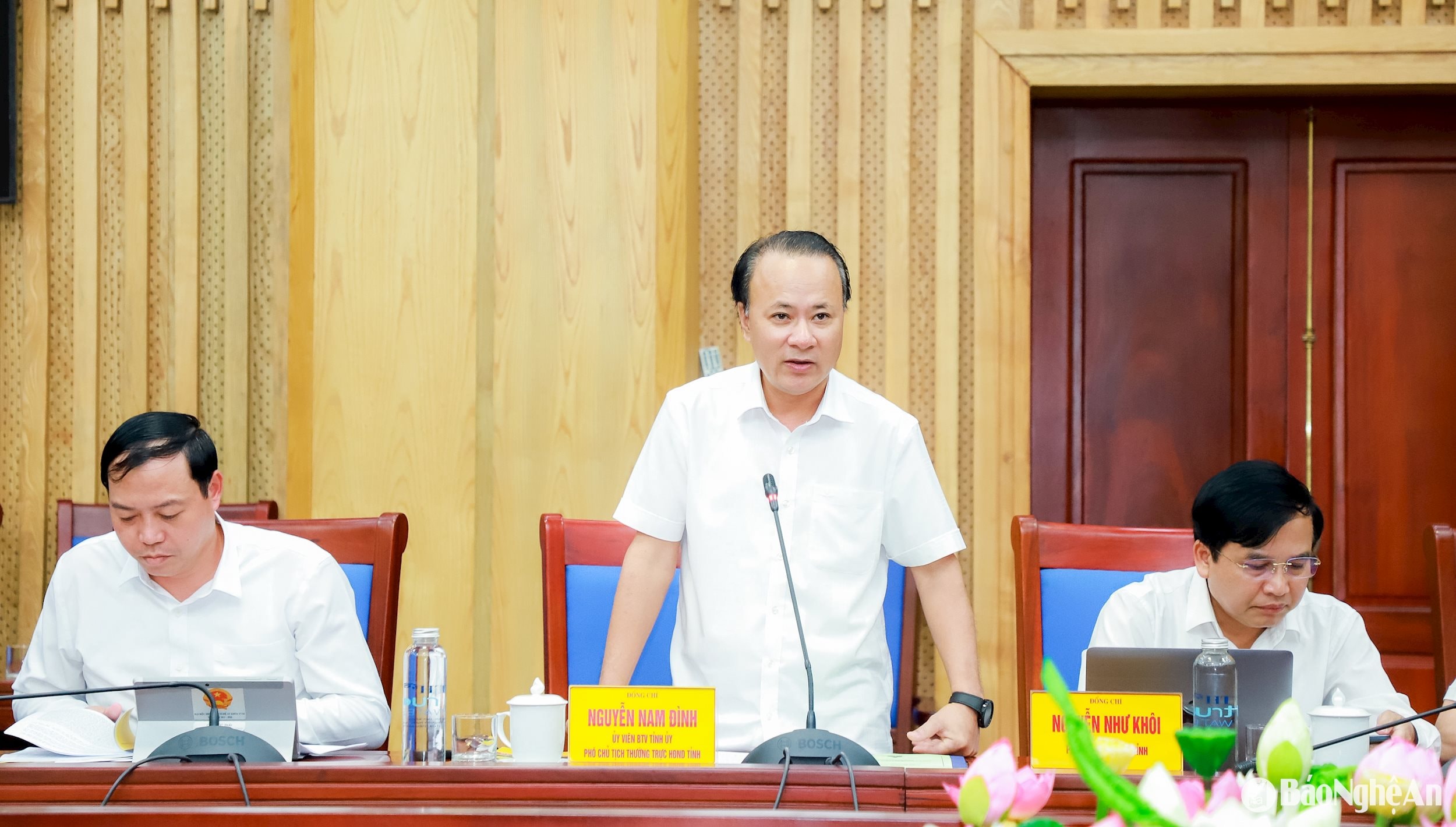
To continue to effectively implement the planning and arrangement of the network of educational institutions in particular and improve the quality of education and training in general, contributing to training human resources to meet the requirements of innovation and development of the province in the coming time, on behalf of the monitoring delegation, the Standing Vice Chairman of the Provincial People's Council requested the Provincial People's Committee to direct the determination of specific indicators for the development of the network of educational institutions in the new period in accordance with the approved planning, in accordance with the 2-level local government model.
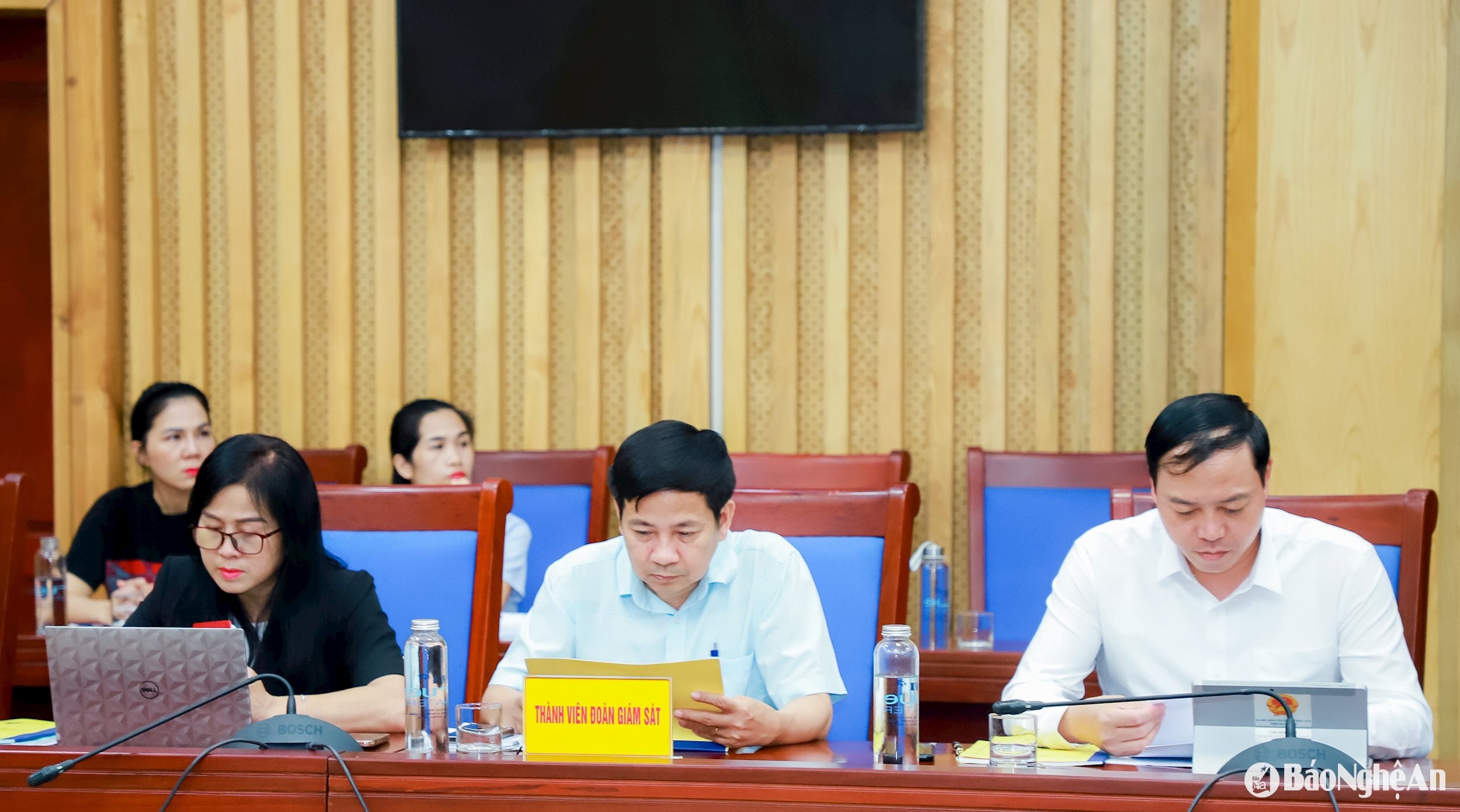
In particular, the Provincial People's Committee focuses on solutions and roadmaps to implement the planning of the educational facility network, especially reducing the number of individual locations to focus on investing in the construction of semi-boarding and boarding schools; continuing to organize the assessment of the effectiveness of the implementation of the Provincial People's Council's Resolutions on the policy mechanisms invested in education development, proposing to develop policies for education in the period of 2026-2030 to ensure practicality and effectiveness, while adjusting current policies that are no longer suitable to reality.
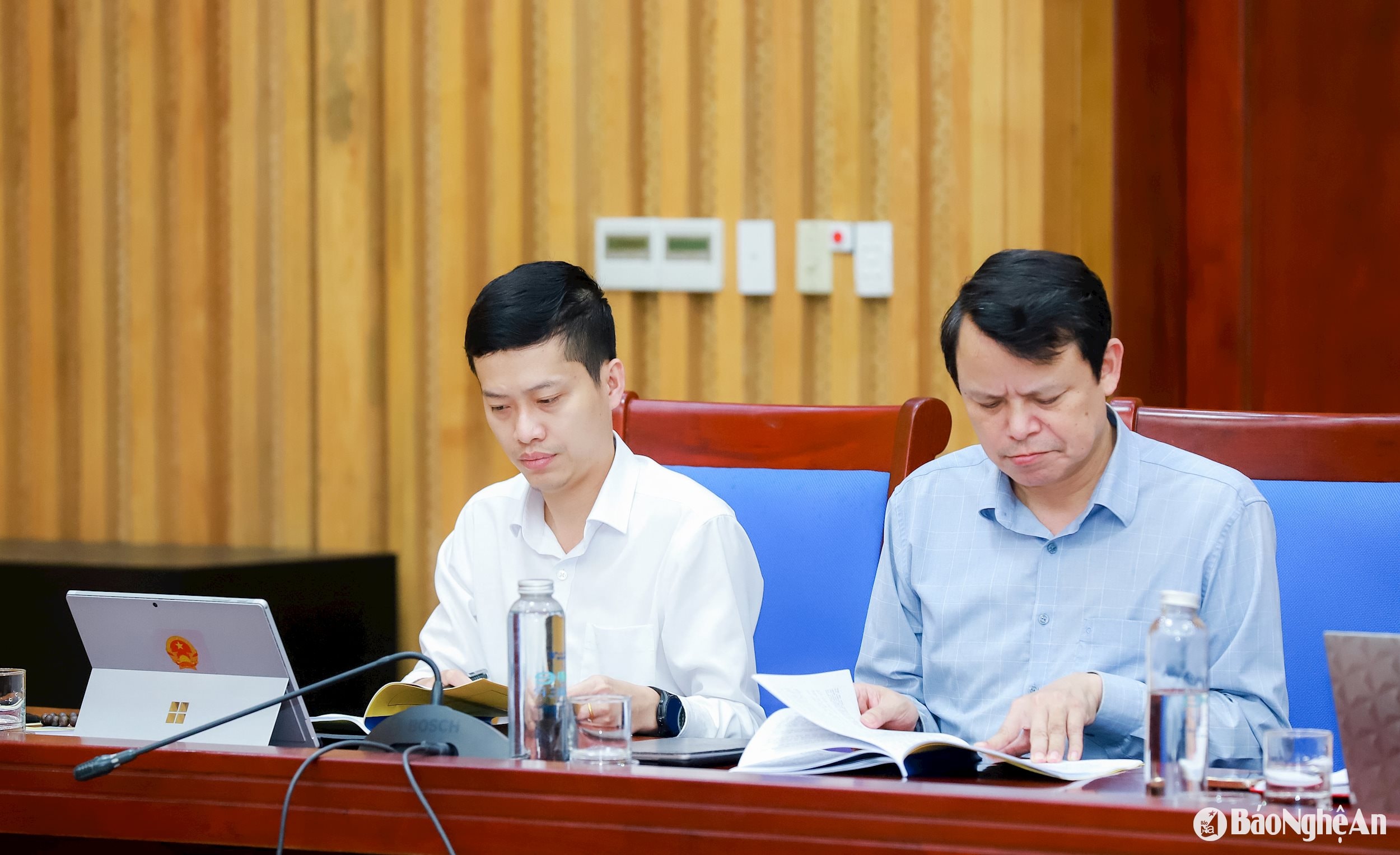
The Standing Vice Chairman of the Provincial People's Council also requested the Provincial People's Committee to direct the implementation of planning and arranging the network of vocational training facilities until 2025 and orientation to 2030, consider restructuring and rearranging vocational training facilities in the province in the direction of inter-regional, high quality, linked to the needs of the labor market and the province's human resource development strategy in the coming period.
The Provincial People's Committee directs sectors and levels to handle and effectively use educational facilities after the rearrangement, and researches the priority use of surplus facilities after the rearrangement to build schools or public housing, dormitories for teachers and students, especially in remote areas.


